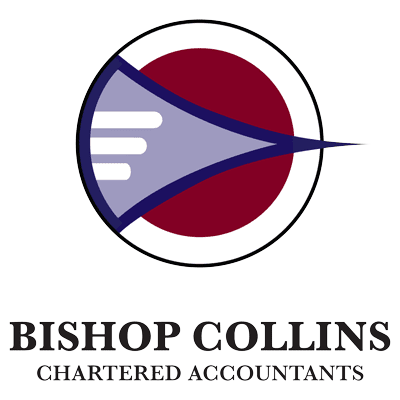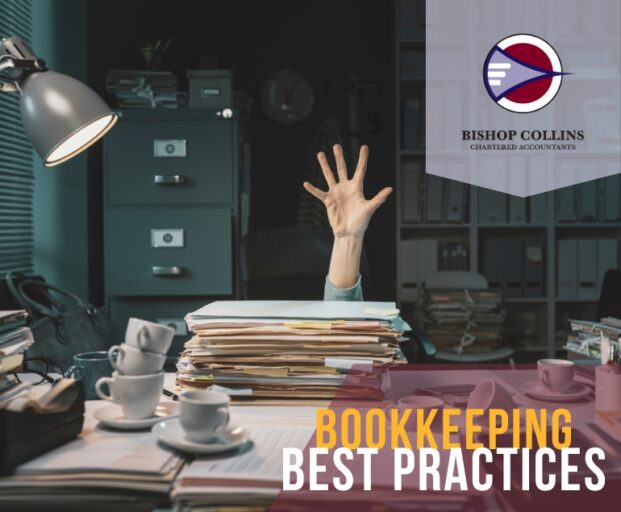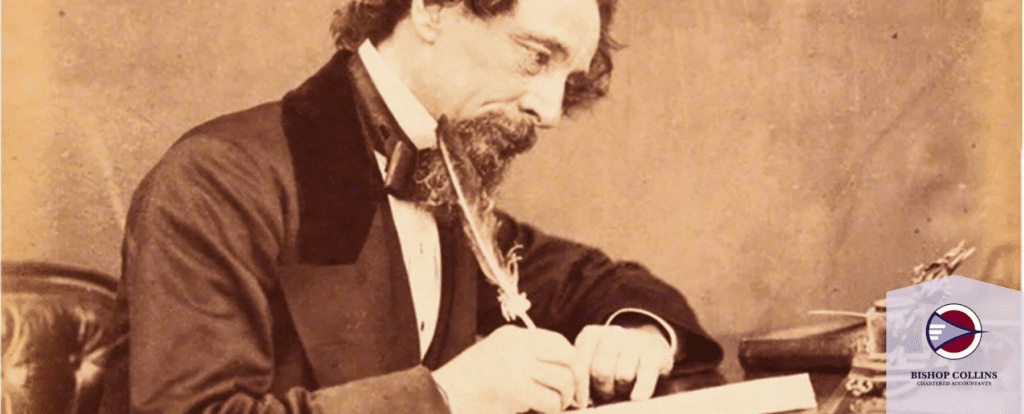Accurate bookkeeping is crucial for maintaining the financial health of a business. You’re probably aware of this, but you might be put off by the seemingly dry and tedious nature of bookkeeping.
Well, stick around until the end of this blog; we’ll not only outline our top tips for accurate bookkeeping, but we’ll also highlight some famous (and infamous) bookkeepers of our time. Some of them might just change your mind about this would-be boring profession!
But back to business. By implementing effective bookkeeping practices, you can ensure accuracy, improve efficiency, and make informed financial decisions that are essential for the overall success of your business.
Our expert bookkeepers here at Bishop Collins have curated top tips for accurate bookkeeping best practices, and outline the essential skills and attributes of a good bookkeeper. Let’s open the books and get started.
What Do Bookkeepers Actually Do?
It’s always good to start with the basics. Bookkeepers play a vital role in managing the financial aspects of businesses. They’re responsible for accurately recording financial transactions, reconciling accounts, managing accounts payable and receivable, processing payroll, and generating financial reports for analysis.
Bookkeepers (well, good bookkeepers, that is) ensure compliance with tax laws and regulations, utilise accounting software and technology, and collaborate with accountants and auditors to maintain financial transparency.
With their expertise, bookkeepers contribute to the smooth operation of businesses by maintaining accurate financial records and supporting overall financial management.
Interested in a first-hand account of a real bookkeeper’s day-to-day? Check out our ‘Day in the Life of a Bookkeeper’ blog post here.
 Top Bookkeeping Tips for Accuracy and Efficiency
Top Bookkeeping Tips for Accuracy and Efficiency
Now we know the basics of bookkeeping, let’s get into some of our most effective strategies and bookkeeping best practices.
Implementing these tips, or even being familiar with them so you can properly liaise with your own bookkeeper, can ensure that your financial records are organised, up-to-date, and error-free.
In this section, we will explore some top tips that will help you streamline your bookkeeping processes and achieve accuracy in your financial reporting. Let’s dive in!
Organise Your Financial Documents
Keeping your financial documents, such as receipts, invoices, bank statements, and payroll records, organised and readily accessible is essential.
By maintaining a systematic approach, you can easily retrieve and accurately record information when needed.
Utilise Cloud-based Accounting Software
Consider using accounting software that suits the needs of your business.
These cloud-based tools automate bookkeeping tasks, reduce errors, and provide real-time financial insights.
Explore options such as QuickBooks, Xero, or MYOB to streamline your bookkeeping processes.
Maintain Separate Personal and Business Accounts
To ensure accurate recording of business-related expenses and income, maintain separate bank accounts and credit cards for personal and business transactions.
This separation eliminates confusion and simplifies year-end tax preparation.
Implement a Consistent Chart of Accounts
Develop a chart of accounts tailored to your business needs.
This framework categorises and organises financial transactions consistently, enabling accurate reporting and analysis. It provides a standardised structure for recording income, expenses, assets, and liabilities.
Diligently Track Income and Expenses
Record all income and expenses promptly and accurately. This includes sales, purchases, payroll, overhead costs, and any other financial transactions.
Regularly reconcile bank statements to ensure all transactions are accounted for. Depending on your business type, consider reconciling weekly or at least monthly.
Monitor and Manage Cash Flow
Maintaining a close eye on your cash flow is vital for business success.
Track the inflow and outflow of cash to anticipate and address any cash shortages or surpluses in a timely manner.
This allows you to make informed decisions and ensure the smooth operation of your business.
Stay Updated on Tax Regulations
Keep yourself informed about tax regulations relevant to your business, such as payroll tax, GST, PAYG Withholding, and other obligations.
Accurately recording these transactions in your company’s general ledger is crucial. If you lack expertise or need assistance, consult a professional accountant to ensure compliance.
Regularly Review Financial Reports
Regularly review financial reports such as profit and loss statements, balance sheets, and cash flow statements.
These reports offer valuable insights into your business’s financial health and help identify discrepancies or areas that require attention. Use these reports to inform your decision-making process.
What Are the Attributes of a Good Bookkeeper?
A good bookkeeper possesses a unique set of skills and qualities that contribute to their effectiveness in managing financial records. These attributes go beyond technical knowledge and extend to personal qualities that enhance their performance.
Whether it’s a strong numerical aptitude, attention to detail, or proficiency in bookkeeping software, these attributes form the foundation of a competent bookkeeper.
A good bookkeeper possesses the following skills:
1. Strong numerical aptitude: Bookkeepers should possess a solid understanding of basic mathematics and be comfortable working with numbers.
2. Meticulous attention to detail: Accurate recording and organisation of financial transactions require meticulous attention to detail to avoid errors or discrepancies.
3. Knowledge of accounting principles: A strong understanding of fundamental accounting principles and concepts, such as debits and credits, double-entry bookkeeping, financial statements, and the general ledger, is essential.
4. Proficiency in bookkeeping software: Familiarity with specialised accounting software and the ability to efficiently navigate and utilise their features is important for streamlining bookkeeping processes.
5. Data entry and organisation skills: Bookkeepers should be skilled in data entry, organising financial records, and maintaining an orderly approach for accurate and accessible financial information.
6. Analytical skills: Strong analytical skills enable bookkeepers to analyze financial data, identify patterns or discrepancies, and generate meaningful reports for informed decision-making and financial planning.
7. Time management: Effective time management and prioritisation skills are necessary to handle multiple tasks, meet deadlines, and maintain accurate financial records.
8. Communication skills: Clear and concise communication, both written and verbal, is important for conveying financial information, addressing queries, and collaborating effectively with clients, colleagues, and financial professionals.
9. Integrity and confidentiality: Bookkeepers handle sensitive financial information, so maintaining high ethical standards, integrity, and strict confidentiality is crucial.
10. Continuous learning: Bookkeeping and accounting are ever-evolving fields with new regulations, software updates, and industry trends. A bookkeeper should have a willingness to learn, adapt, and stay updated to ensure professional growth.
 Famous Bookkeepers in History
Famous Bookkeepers in History
We mentioned above some pretty famous bookkeepers that might just elevate the age-old profession for you. Have a look at these famous figures who, low and behold, dabbled in bookkeeping during their days.
Luca Pacioli
Luca Pacioli, an Italian mathematician, is often referred to as the “Father of Accounting.”
In 1494, he published the first known book on double-entry bookkeeping, titled “Summa de arithmetica, geometria, proportioni et proportionalita.”
Raymond Chandler
Before achieving renown as an author of detective novels, Raymond Chandler worked as a bookkeeper for the Dabney Oil Syndicate in Los Angeles.\\\
His experiences in the business world influenced his writing style and provided material for his later works.
Charles Dickens
The famous English writer target=”_blank”Charles Dickens worked as a bookkeeper in a blacking factory at the age of 12.
His early experiences in bookkeeping and observations of social and economic issues influenced his literary works.
Harry Truman
Before becoming the 33rd President of the United States, Harry S. Truman briefly worked as a bookkeeper for a bank in Kansas City.
Truman’s background in finance and accounting contributed to his understanding of economic policies during his presidency.
Infamous Bookkeeping Cases
You may have heard of those renowned bookkeepers above, but what about some of the infamous cases of bookkeeping? While these instances certainly didn’t display bookkeeping best practices, they did catch the eyes of millions – and are still talked about to this day.
Al Capone’s Bookkeeper
Al Capone, the notorious American gangster of the Prohibition era, had a bookkeeper named Joseph “The Accountant” Valachi.
Valachi became an informant and provided crucial testimony to law enforcement about Capone’s illegal activities, including tax evasion.
WorldCom’s Bookkeepers
WorldCom, a telecommunications company, faced a major accounting scandal in 2002.
The company’s CFO, Scott Sullivan, and other executives orchestrated an accounting fraud to inflate earnings and hide expenses.
This fraud, involving improper capitalisation of expenses, ultimately led to the company’s bankruptcy.
 Speak to an Experienced Bookkeeper Today
Speak to an Experienced Bookkeeper Today
Accurate bookkeeping is essential for the financial health and success of any business. By following the top bookkeeping tips outlined in this article and employing a skilled bookkeeper with the necessary attributes, you can ensure the integrity of your financial records.
Whether you need assistance with bookkeeping or seek professional advice, the experienced bookkeepers at Bishop Collins are here to help.
Contact us today to discuss your bookkeeping needs and ensure your business’s financial well being.





 Top Bookkeeping Tips for Accuracy and Efficiency
Top Bookkeeping Tips for Accuracy and Efficiency Famous Bookkeepers in History
Famous Bookkeepers in History Speak to an Experienced Bookkeeper Today
Speak to an Experienced Bookkeeper Today